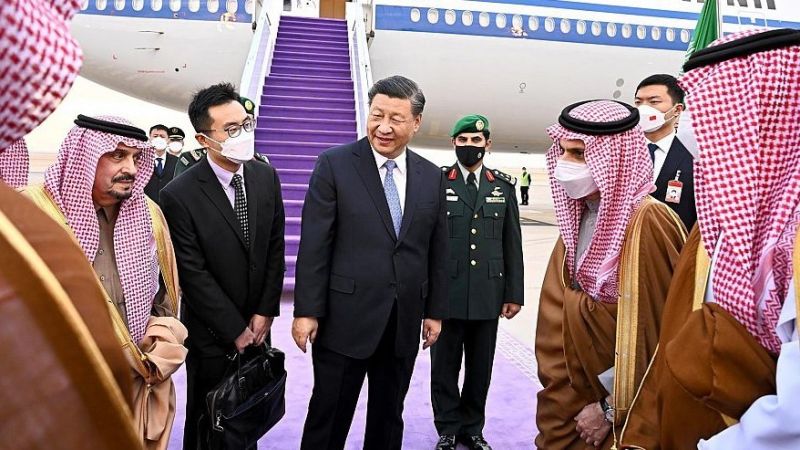Chinese President Xi Jinping arrived in Saudi Arabia on Wednesday for a 3-day official visit at the invitation of Saudi Crown Prince Mohammed bin Salman.
This is Peng’s third visit abroad since the outbreak of the Covid epidemic and his first to Saudi Arabia since 2016.
China Central Television said, “Chinese President Xi Jinping has arrived by private plane in the Saudi capital, Riyadh,” noting that Ping will participate in holding the first ever Arab-China summit in Riyadh.
The Chinese president’s visit to Riyadh comes at a time when disagreement and tension have risen in Saudi-US relations amid the decision of the organization “OPEC +” to reduce its oil production by 2 million barrels per day , and contrary to Washington’s desire to ramp up production to fill the shortfall in Russian oil and gas supplies following the sanctions.
US President Joe Biden had accused Saudi Crown Prince Mohammed bin Salman of solidarity with Russia through the “OPEC+” decision.
Meanwhile, the White House commented on the Chinese president’s visit to Saudi Arabia on Wednesday, saying, “It is an example of China’s attempts to extend its influence around the world and that it will not change US policy towards of the Middle East.”
“President Xi’s tours are hardly a surprise,” White House National Security Council spokesman John Kirby told reporters, but the United States is focused on its partnership in the region.
“We understand that China is trying to extend its influence around the world,” he added.
Experts believe Ping’s visit to Saudi Arabia will be a blow to US influence in the “Middle East” region and deepen the differences between Riyadh and Washington.
The ongoing visit is notable for the willingness of the two sides to develop economic and trade relations in light of the current geopolitical conditions, while the visit includes in its program official meetings with Saudi King Salman bin Abdulaziz and his crown prince.
The visit also includes the holding of a Saudi-Chinese summit, a Chinese-Gulf summit and an Arab-Chinese summit, with the participation of several leaders of the Gulf Cooperation Council and Arab countries.
Saudi media had expected that major contracts and deals in the amount of about $30 billion would be signed during this visit, as well as the conclusion of political deals.
Beijing and Riyadh maintain strategic relations on many levels, particularly in the energy and oil sector, as China is the second largest economy in the world and is one of the most important buyers of Saudi oil products, in addition to the fact that Riyadh plays an important role in the Chinese economy buying up huge investments in recent years.


